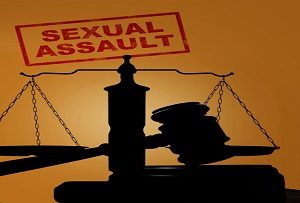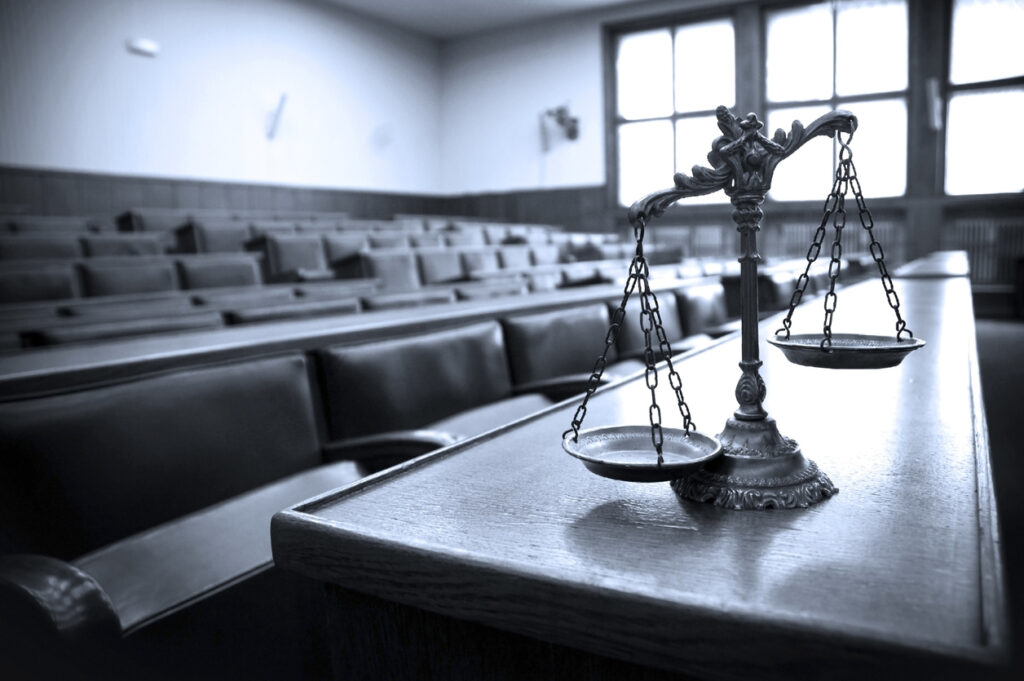Cambridge Sexual Abuse Law Firm Helping Victims Throughout Illinois
 Sexual abuse is a serious problem that can result in both criminal and civil responsibility for the individual or organization responsible. Anyone who has been a victim should immediately seek help from both local law enforcement and an attorney who practices in this area of the law.
Sexual abuse is a serious problem that can result in both criminal and civil responsibility for the individual or organization responsible. Anyone who has been a victim should immediately seek help from both local law enforcement and an attorney who practices in this area of the law.
A Cambridge sexual abuse attorney at Dinizulu Law Group can provide more information about how victims can get help and if there is compensation available through a civil lawsuit. Here are a few common scenarios where sexual abuse and assault are likely to happen.
Sexual abuse during transportation and ride-sharing
An Uber sexual assault lawyer in Cambridge often deals with cases where victims were harmed while being driven to their destination. Uber and Lyft have taken some steps to improve transparency by releasing reports on safety-related incidents, including sexual assault, within their platforms. These reports offer some insights into the frequency of these incidents. However, it’s important to note that these numbers only represent reported cases, and the actual figures may be higher. Both Uber and Lyft have implemented various safety features, such as driver background checks, in-app emergency buttons, and ride-tracking options. They have also invested in technology like real-time ID verification and driver selfies to enhance passenger safety. These measures aim to deter potential perpetrators and provide assistance when needed, however, they are imperfect solutions and passengers may still be harmed by drivers. Anyone who is concerned about an incident with a ride-sharing driver can speak with a Lyft sexual assault lawyer in Cambridge for answers.
Religious institutions and sexual abuse
Sexual assault within religious institutions, such as churches, can be especially distressing due to the violation of trust between members and clergy. Clergy members or religious leaders may exploit their positions of authority to commit sexual assault or engage in inappropriate relationships with congregants, including minors. Individuals working within the church, whether as volunteers or paid staff, can also perpetrate sexual assault on church premises. Some religious institutions have faced criticism for attempting to cover up allegations of sexual assault, further complicating the pursuit of justice for victims. However, a church sexual assault lawyer in Cambridge at Dinizulu Law Group can assist victims who were abused at a religious institution with the process of filing civil lawsuits.
How does sexual abuse happen in hotels?
It is essential to recognize that hotels are not immune to the problem of sexual assault, and incidents do occur in these settings. Several factors contribute to the occurrence of sexual assault in hotels.
Hotels offer a level of privacy and anonymity, making them potentially attractive settings for individuals with malicious intent. Victims may be less likely to report assaults due to fear, embarrassment, or concerns about their reputation. Staff members, including cleaning and maintenance personnel, often have access to guest rooms. In some cases, this access can lead to incidents of sexual assault if employees abuse their positions of trust. Guests in hotels are often transient, staying for short periods. This transience can make it difficult for victims to come forward and report incidents, as they may not be familiar with the local authorities or support services. Hotels frequently host events, parties, and conferences, often involving alcohol. Alcohol consumption can increase the risk of sexual assault, as impaired judgment and inhibitions can lead to dangerous situations. The effectiveness of security measures and surveillance systems varies from one hotel to another. Inadequate security measures can create an environment where perpetrators feel emboldened.
While it’s challenging to provide precise data on the prevalence of sexual assault in hotels, the hospitality industry has recognized the importance of addressing safety concerns. Many hotels have implemented enhanced security measures, staff training programs, and strict policies to prevent and respond to such incidents. However, these efforts are not uniform across all establishments, and vigilance on the part of both guests and hotel management remains essential to create a safe environment for all patrons. Victims of sexual assault in hotels are encouraged to report incidents to law enforcement and speak with a Cambridge hotel sexual assault lawyer.
Is an employer liable for sexual assault committed by an employee in a church, school, or business?
Liability for the employer or organization that allowed the abuse to happen is also another factor that needs to be considered. However, the issue of employer liability for sexual assault committed by an employee in various settings, such as a church, school, or business, is a complex and legally nuanced matter. The extent of an employer’s liability depends on several factors, including the nature of the assault, the relationship between the employee and the employer, and the specific circumstances surrounding the incident. Here are some key considerations about this issue, and a sexual abuse lawyer in Cambridge should be contacted for more specific answers.
Vicarious Liability:
- In many jurisdictions, employers can be held vicariously liable for the actions of their employees if those actions occurred within the scope of employment. This means that if an employee commits a sexual assault while carrying out their job duties or within the course of their employment, the employer may be held responsible for the employee’s actions. However, if the assault was unrelated to the employee’s job responsibilities and occurred outside the scope of employment, the employer is likely not liable.
Negligence:
- Apart from vicarious liability, employers can also be held liable for sexual assault if they were negligent in their hiring, supervision, or retention of the employee. If an employer fails to conduct proper background checks, ignores prior complaints or warnings about the employee’s behavior, or fails to take appropriate action when signs of misconduct are evident, they may be deemed negligent and held responsible for the assault.
Employee Training and Policies:
- Employers and schools are expected to have policies and training programs in place to prevent sexual harassment and assault in the workplace. If an employer failed to provide adequate training or did not enforce their policies effectively, they may be held liable by a school sexual assault lawyer in Cambridge for an assault that occurred on their premises.
Contractual and Church Liability:
- In religious institutions like churches, the liability may be influenced by the specific relationship between the alleged perpetrator and the institution. Clergy members may have different legal statuses depending on the denomination and their employment relationship with the church. In some cases, religious organizations have faced liability for sexual misconduct by their clergy members.
School Liability:
- In schools, particularly K-12 institutions, there may be specific laws or regulations governing the duty of care owed to students. Schools can be held liable for sexual assaults if they fail to provide a safe environment, properly investigate allegations, or take appropriate action to protect students from harm.
It is essential to consult with legal experts in cases of sexual assault to determine the specific circumstances and applicable laws in a particular jurisdiction. Liability can vary significantly depending on the details of the case. Employers, including churches, schools, and businesses, have a duty to protect their employees, members, and students from harm, and the extent of their liability will be determined by how well they fulfill that duty and their legal obligations.
Call (312) 384-1920 for a FREE consultation with one of our Cambridge sexual assault lawyers.
How does sexual assault happen at colleges and universities?
Sexual assault on college and university campuses is a pressing and complex issue that can occur through various means and in different settings. Understanding how these incidents happen is crucial in developing prevention strategies and providing support to survivors. Here are some common ways in which sexual assault can occur at colleges and universities:
- Alcohol and Drug Facilitated Assault: Alcohol and drug-facilitated sexual assault is a prevalent problem on campuses. Perpetrators may exploit situations where individuals are intoxicated or under the influence of substances, making it easier to take advantage of their impaired judgment and inability to consent.
- Date Rape: Date rape, also known as acquaintance rape, happens when the perpetrator and victim know each other. These incidents can occur during social events, parties, or one-on-one encounters, often involving manipulative tactics to undermine consent.
- Predatory Behavior: Some individuals actively seek out vulnerable targets, such as freshmen or those who are socially isolated. They may befriend or groom victims before assaulting them.
- Coercion and Manipulation: Perpetrators may use emotional manipulation, threats, or coercion to pressure someone into non-consensual sexual activity. This can happen in relationships, within friend groups, or in casual encounters. A university sexual assault lawyer in Cambridge can provide more information about how to respond to these kinds of problems.
- Sexual Harassment: Repeated, unwelcome sexual advances, comments, or behavior can create a hostile environment where victims may feel unsafe. This can happen both in social settings and within the academic environment.
- Inadequate Security: Poorly lit areas, lack of surveillance, and insufficient security measures on campus can create opportunities for sexual assault to occur.
- Online and Social Media: Cyberbullying, non-consensual sharing of explicit images (revenge porn), or online harassment can escalate to physical sexual assault in some cases.
- Peer Pressure and Hazing: In some cases, hazing rituals within fraternities, sororities, sports teams, or other campus groups can involve sexual assault as a form of initiation or coercion.
Colleges and universities are taking steps to address sexual assault on their campuses, including implementing policies and programs aimed at prevention, education, and support for survivors. These efforts involve consent education, bystander intervention training, counseling services, and reporting mechanisms to help victims come forward.
It is crucial to create a culture of accountability, support, and respect within academic institutions to combat sexual assault effectively. Victims of sexual assault on college campuses have rights to seek legal assistance from a Cambridge college sexual assault lawyer, report incidents to campus authorities and law enforcement, and access support services, including counseling and advocacy. Promoting awareness, prevention, and survivor-centric policies are essential steps towards creating safer learning environments. Victims should also utilize the court system to seek justice for having their safety violated in these institutions.
 What are the rights of victims of sexual assault?
What are the rights of victims of sexual assault?
Victims of sexual assault have several legal rights, including:
- Right to report: Victims have the right to report the assault to law enforcement, which can lead to a criminal investigation and prosecution of the perpetrator.
- Right to sue: Victims can pursue civil litigation against the perpetrator or institutions responsible for their safety if negligence or misconduct played a role in the assault.
- Right to protection: Victims can seek protective orders with the help of a molestation lawyer in Cambridge to safeguard their safety and prevent contact with the perpetrator.
- Right to support: Victims have access to support services such as counseling, therapy, and victim advocacy programs to help them cope with the emotional and psychological aftermath of the assault.
- Right to privacy: Victims have the right to privacy throughout legal proceedings, and their identity can be protected in many cases.
- Right to compensation: In some cases, victims may be eligible for compensation through victim compensation programs or civil lawsuits with the help of a Cambridge sexual assault attorney against the perpetrator or responsible institutions.
Contact the Cambridge sexual assault lawyers at Dinizulu Law Group Today. More information and assistance is available. Call (312) 384-1920 for a FREE consultation.
The Dinizulu Law Group is a firm that has many experienced sexual assault attorneys in Cambridge. Yao Dinizulu and his attorneys can provide additional information and answer questions during a consultation.



